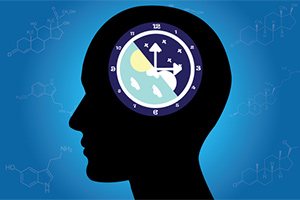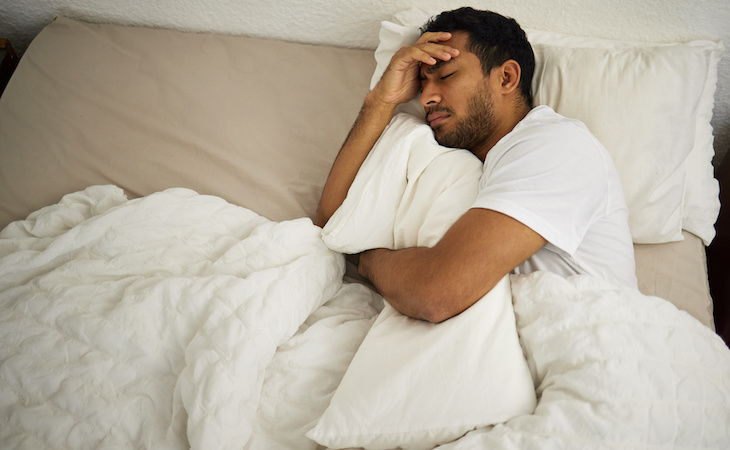Cognitive Behavioral Therapy for Insomnia (CBT-I) - Proven Techniques
Cognitive Behavioral Therapy for Insomnia (CBT-I) - Proven Techniques
Blog Article
Effective Treatment Solutions for Managing Rest Disorders and Enhancing Restful Rest
In the world of health care, the management of rest disorders and the mission for peaceful sleep are essential parts of general well-being. Reliable therapy solutions supply a diverse method to tackle these challenges, varying from cognitive behavioral interventions to alternative practices that advertise relaxation and mindfulness. The exploration of numerous approaches, consisting of the assimilation of medication and light treatment, opens a realm of possibilities in the quest of better rest top quality. As we browse the intricate landscape of rest disorders and seek to boost our rest experience, a much deeper understanding of these therapy services may hold the secret to opening a much more refreshing and fulfilling restorative trip.
Cognitive Behavior Therapy for Sleeping Disorders (CBT-I)
Cognitive Behavioral Therapy for Sleep Problems (CBT-I) is a structured, evidence-based treatment technique that concentrates on dealing with the hidden aspects adding to rest disruptions. This kind of therapy aims to customize habits and thoughts that worsen insomnia, eventually advertising healthy and balanced rest patterns. CBT-I usually involves a number of essential elements, including cognitive treatment, rest constraint, stimulation control, and sleep hygiene education and learning.
Cognitive therapy aids individuals determine and alter unfavorable idea patterns and beliefs concerning rest that may be impeding their ability to fall or stay asleep. Sleep limitation includes limiting the amount of time invested in bed to match the person's real sleep duration, thereby increasing rest performance (insomnia counseling). Stimulation control methods assist establish a strong organization in between the bed and sleep by motivating individuals to head to bed just when sleepy and to stay clear of taking part in promoting tasks in bed
Additionally, rest health education and learning concentrates on developing healthy sleep behaviors, such as preserving a constant rest schedule, developing a relaxing bedtime routine, and optimizing the rest atmosphere. By dealing with these aspects comprehensively, CBT-I uses an effective non-pharmacological intervention for managing insomnia and enhancing total rest quality.
Rest Hygiene Practices
Having developed the structure of cognitive restructuring and behavioral alterations in addressing sleep problems through Cognitive Behavioral Treatment for Sleep Problems (CBT-I), the emphasis currently shifts in the direction of discovering crucial Sleep Health Practices for maintaining ideal sleep quality and total wellness.
Rest hygiene techniques encompass a variety of habits and ecological aspects that can considerably influence one's capability to drop off to sleep and stay asleep throughout the evening. Regular sleep and wake times, developing a relaxing bedtime routine, and enhancing the sleep environment by maintaining it dark, silent, and cool are vital components of excellent sleep health. Restricting direct exposure to screens before bedtime, staying clear of stimulants like high levels of caffeine close to going to bed, and participating in normal exercise throughout the day can additionally advertise better rest quality.
Furthermore, practicing relaxation techniques such as deep breathing exercises or meditation before bed can assist calm the mind and prepare the body for rest. By incorporating these sleep hygiene techniques into one's day-to-day regimen, people can develop a healthy and balanced sleep pattern that sustains restful sleep and overall wellness.
Relaxation Methods and Mindfulness
Applying relaxation strategies and mindfulness techniques can play a crucial function in cultivating a feeling of calm and advertising quality sleep. sleep deprivation help. These techniques aim to silent the mind, decrease stress and anxiety, and produce an optimal atmosphere for restful rest. One widely exercised approach is deep breathing workouts, where people focus on slow, deep breaths to kick back the mind and body. Modern muscle leisure involves tensing and after that launching each muscle team, advertising physical leisure. Furthermore, directed images can assist carry people to a relaxed area in their minds, helping in stress and anxiety decrease and improving rest quality.
Mindfulness methods, such as reflection and yoga, are also reliable in advertising relaxation and enhancing sleep. Mindfulness motivates individuals to stay existing in the moment, letting go of stress over the past or future. By incorporating these methods into a bedtime routine, people can indicate to their bodies that it is time to relax and prepare for sleep. In general, incorporating relaxation strategies and mindfulness techniques can considerably add to managing sleep conditions and boosting general sleep top quality.

Medication Options for Sleep Disorders
After checking out leisure methods and mindfulness practices as non-pharmacological treatments for enhancing sleep high quality, it is vital to consider medicine alternatives for people with rest conditions. In cases where way of life adjustments and therapy do not offer adequate alleviation, medicine can be a read this article valuable tool in managing sleep disturbances.
Generally prescribed medicines for sleep conditions include benzodiazepines, non-benzodiazepine hypnotics, antidepressants, and melatonin receptor agonists. Benzodiazepines, such as diazepam, are sedatives great post to read that can assist cause rest, yet they are commonly suggested for temporary usage as a result of the threat of reliance. Non-benzodiazepine hypnotics like zolpidem are additionally made use of to deal with insomnia and have a reduced risk of dependence contrasted to benzodiazepines. Antidepressants, such as trazodone, can be helpful for individuals with co-occurring depression and rest disruptions. Melatonin receptor agonists, like ramelteon, target the body's natural sleep-wake cycle and can be valuable for controling sleep patterns.
It is important for people to seek advice from with a doctor to figure out the most suitable medicine alternative based on their particular rest disorder and clinical history.
Light Treatment for Body Clock Guideline
Light treatment, additionally called photo-therapy, is a non-invasive treatment method used to regulate circadian rhythms and improve sleep-wake cycles. This therapy includes exposure to brilliant light that mimics all-natural sunshine, which helps to reset the body's biological rhythm. By subjecting individuals to specific wavelengths of light, typically in the early morning or evening depending on the desired impact, light therapy can properly change the body clock to promote wakefulness throughout the day and boost restful sleep during the night.
Research has revealed that light treatment can be especially advantageous for people with body clock disorders, such as delayed rest stage disorder or jet lag. It can additionally be practical for those experiencing seasonal affective condition (SAD), a sort of anxiety that typically takes place throughout the winter season when all-natural light direct exposure is lowered. Light treatment is generally well-tolerated and can be used along with various other treatment approaches for rest conditions to maximize outcomes and improve total sleep high quality.
Final Thought
Finally, effective therapy options for handling rest problems and boosting restful rest include Cognitive Behavior modification for Sleeplessness (CBT-I), rest hygiene methods, leisure methods and mindfulness, medicine alternatives, and light treatment for circadian rhythm policy. These sleep disorder clinic near me approaches can help individuals improve their sleep quality and overall wellness. It is very important to consult with a doctor to determine one of the most ideal strategy for resolving rest concerns.
As we browse the intricate landscape of sleep problems and look for to improve our sleep experience, a deeper understanding of these treatment options might hold the secret to unlocking an extra refreshing and meeting corrective journey.
Rest constraint entails limiting the amount of time spent in bed to match the individual's actual rest period, thus increasing sleep efficiency. Regular rest and wake times, developing a relaxing going to bed routine, and maximizing the rest atmosphere by keeping it dark, silent, and cool are vital parts of excellent sleep hygiene. Light therapy is generally well-tolerated and can be made use of in conjunction with other therapy methods for rest problems to optimize end results and enhance overall rest high quality.

Report this page